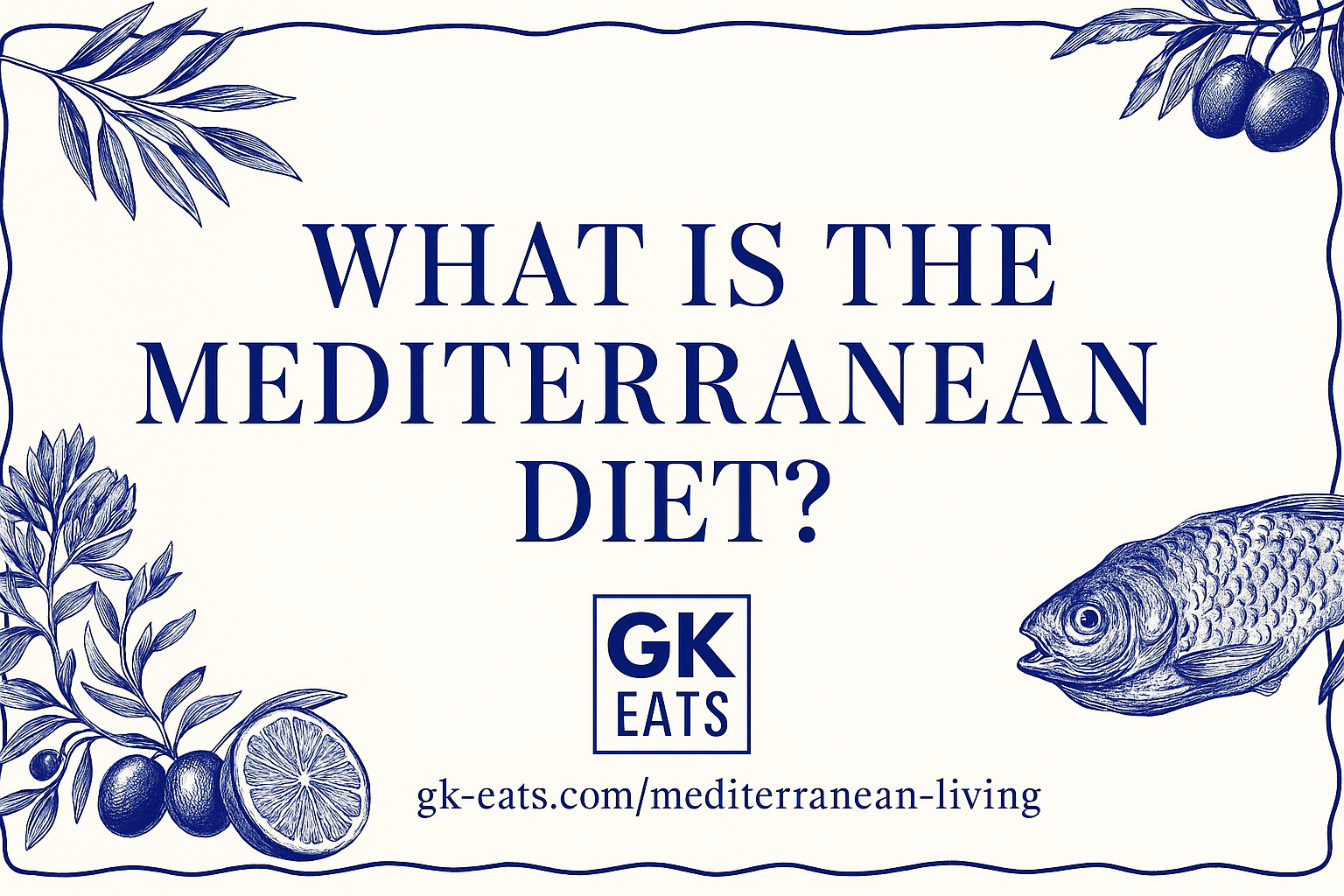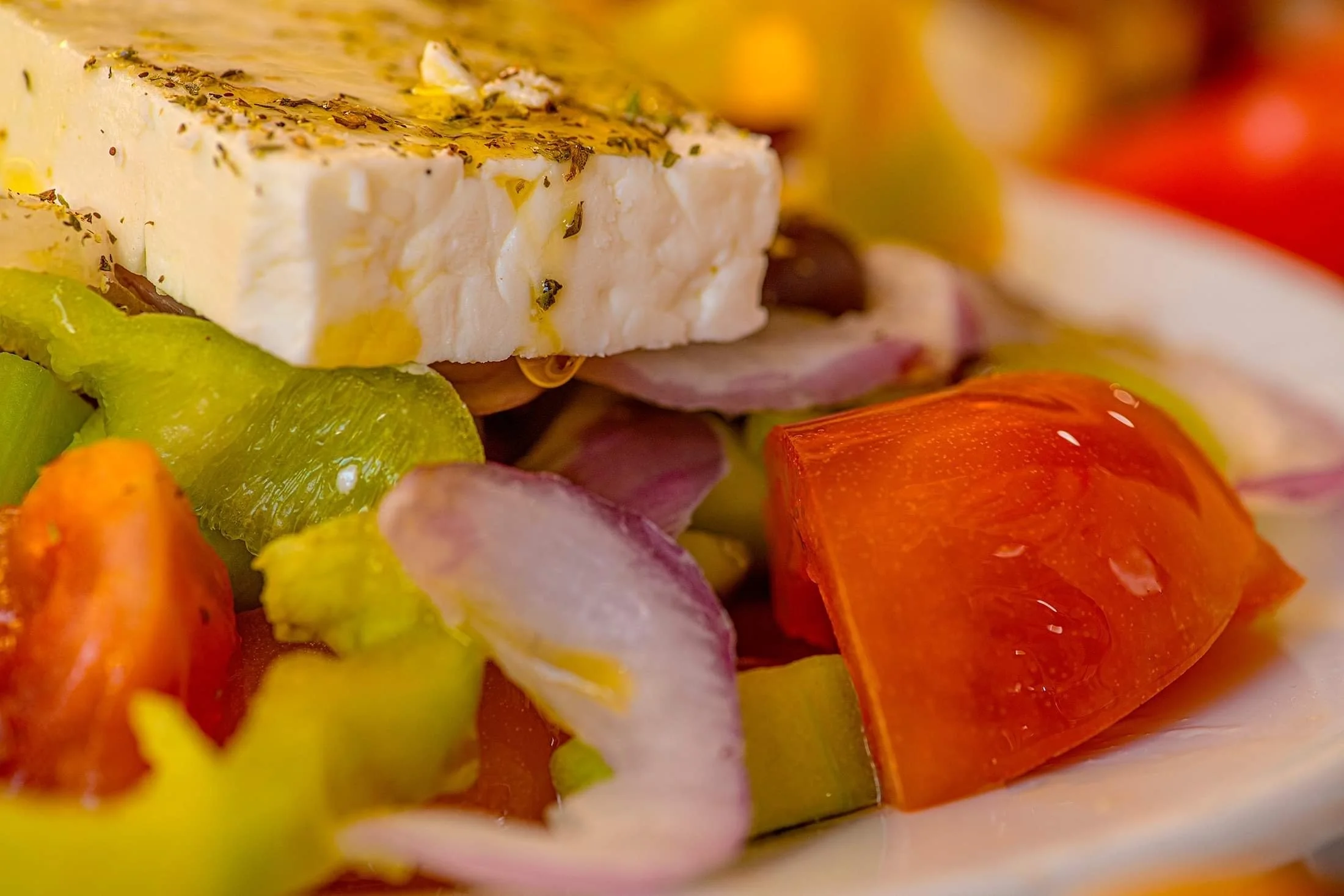What Is the Mediterranean Diet—And Why Is It So Good for You?
When people hear the words Mediterranean diet, they often think of olive oil, feta, and whole foods—but it’s so much more than that. It’s not just a way of eating—it’s a way of living, rooted in balance, simplicity, and connection.
As someone who grew up in Greece, I’ve lived and breathed this lifestyle for as long as I can remember. Now, as a hospitality professional and founder of GK EATS, I’m passionate about helping people understand what the Mediterranean diet really is—and why it’s consistently ranked as one of the healthiest diets in the world.
Let’s break it down.
⸻
🫒 The Foundation: Whole, Natural Foods
At its core, the Mediterranean diet emphasizes fresh, whole ingredients that are local, seasonal, and minimally processed. Think:
• Fresh vegetables like tomatoes and leafy greens
• Fruits like oranges, grapes, figs, and melons
• Legumes such as lentils, chickpeas, and fava beans
• Whole grains like bulgur, farro, and barley
• Heart-healthy fats, especially extra virgin olive oil
• Moderate amounts of fish, seafood, dairy, and poultry.
• Very limited red meat and processed foods
Meals are simple, vibrant, and rich in nutrients—but never boring.
⸻
🍷 Moderation, Not Restriction
One of the most misunderstood parts of the Mediterranean diet is the word “diet” itself. This isn’t about calorie counting or restriction. It’s about moderation and mindfulness. To put it one word, demure! You can indulge in a slice of baklava at a celebration, or drizzle olive oil generously—without guilt.
The ancient Greeks lived by this discipline- «Παν μέτρον άριστον» (pan metron ariston). Everything in moderation! This lifestyle requires intention and being able to build a sense of awareness around food. I have a theory that our current food system, consisting of ultra processed foods, disrupts the harmony of the gut micro biome, leading us to struggle with this principle.
⸻
❤️ The Health Benefits (Backed by Science)
Decades of research have shown that the Mediterranean diet can help:
• Improve heart health
• Lower inflammation
• Reduce the risk of Type 2 diabetes
• Support healthy weight management
• Promote longevity and brain health
In fact, many of the world’s “Blue Zones”—areas where people live significantly longer lives—are in the Mediterranean region.
⸻
👪 Food Is Community
To me, this is the most important part of all: how we eat matters just as much as what we eat.
In Greece, meals are never rushed. They’re shared with family and friends, often outdoors, with conversation and laughter. The Mediterranean diet is built on connection, not convenience. And that makes it more sustainable—and joyful—than any fad diet out there.
⸻
🌿 Start Simple
If you’re looking to adopt this way of eating, start by:
• Swapping butter for olive oil
• Eating more legumes and vegetables
• Reducing red meat to once or twice a week
• Sitting down for meals with others, even if it’s one friend
• Cooking more at home (don’t worry—I’ll help!)
⸻
The Mediterranean Way of Life
The Mediterranean diet is not a trend—it’s a heritage. It’s how my ancestors lived, and how I continue to live today. Through this blog, I’ll be sharing the recipes, traditions, and tips that can help you bring this lifestyle into your own kitchen.
Because eating well shouldn’t feel like a chore—it should feel like coming home.
With love and olive oil,
GK
Greek Salad with tomatoes, onions, cucumbers, olives and feta cheese and drizzle of extra virgin olive oil

